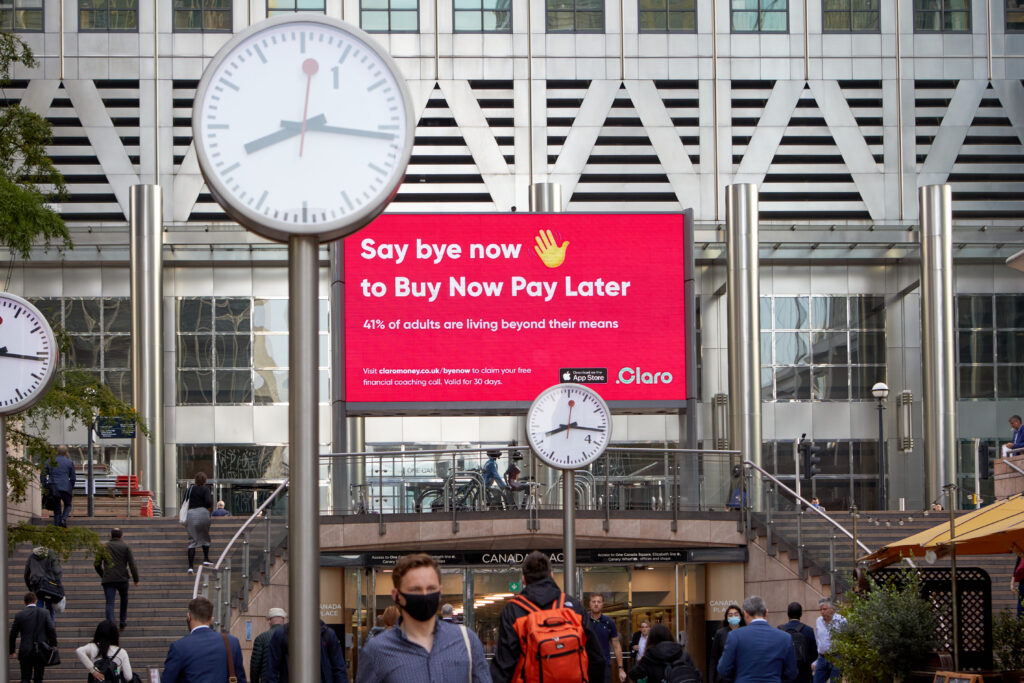
Financial coaching app Claro has recently launched the 'Bye Now Pay Later' campaign, targeting Klarna and similar FinTech companies that offer Buy Now Pay Later (BNPL).
According to a recent review commissioned by the Financial Conduct Authority, pay-later shopping transactions amounted to £2.7bn in 2020. These numbers have resulted in the Financial Conduct Authority (FCA) plans to regulate BNPL.
Claro’s 'Bye Now Pay Later' campaign wants to raise awareness of the benefits of better money management for the British public, regardless of their income or bank balance.
Billboards and advertising vans have been seen across popular locations in London including Oxford Street, Canary Wharf, Westminster, London Bridge as well as outside leading fashion brand’s headquarters including Asos, Boohoo and Klarna.
The campaign also includes statistics generated from Claro’s own research in partnership with Mental Health UK and The Money Charity and show that Brits have gotten used to living beyond what they can afford.
Claro’s report shows that 41% of the people sampled have been living beyond their means over the last 12 months, while 20% of households wouldn’t survive an entire month if they suddenly lost their main source of income and couldn’t borrow money. Additionally, 29% of 18 – 30-year-olds don’t use a budget to manage their income and expenditure.
As Claro’s CEO puts it: “Unconsidered spending and an over-reliance on unsecured financial products, such as BNPL schemes, can ruin people’s personal finances for years.”
Claro’s intention behind the campaign is to raise awareness of the benefits of better money management for the British public, with the goal to help BNPL providers and retailers understand that there is a place for BNPL products, which should be used occasionally rather than a service that consumers rely on to make purchases they can’t really afford.
Shoppers are using BNPL now more than ever before. The impressive rise in the number of consumers choosing these services is linked to the pandemic. During lockdown, consumers bought mostly online, and many who were facing financial challenges during lockdown found that BNPL services were the perfect solution.
This is proof that appropriate regulation is important for consumers to become more aware of their choices to use BNPL.
However, regulating such services won’t necessarily have a negative impact on the ecommerce sector as long as the message being promoted isn’t recommending consumers to stop shopping online completely.
As we’ve discussed on our shift in consumer behaviour knowledge post, the habits that consumers developed as a result of the pandemic are set to stay, with online shopping set to remain focal for many households. It’ll also be interesting to see what the next steps will be as we approach the festive season.
Discover more ecommerce news here or contact us today if you have any questions about BNPL!
Monthly Subscription